There are not many meaningful signs of protest in Vladimir Putin’s Russia these days. But local flare-ups over the health hazards of illegal or quasi-legal dumping in rural areas have revealed a wider discontent with mismanagement and corruption. Protests at dumpsites in Yadrovo and Kolomna, near the Moscow region, have made headlines in Russia and around the world. And when an old friend named Kirill Artyukhov sent me a video on WhatsApp of his neighbors in Shchelkanovo, nearly 50 miles west of the Russian capital, in a hostile standoff with riot police, it was the same culprit in a new location: mismanagement and a very heavy scent of corruption.
I spoke with Artyukhov, who splits his time between Moscow and his house in Sychevo (located less than 2 miles from Shchelkanovo and less than 1 mile from the dumpsite), this week about trash, protesting, and why he couldn’t care less about the World Cup.
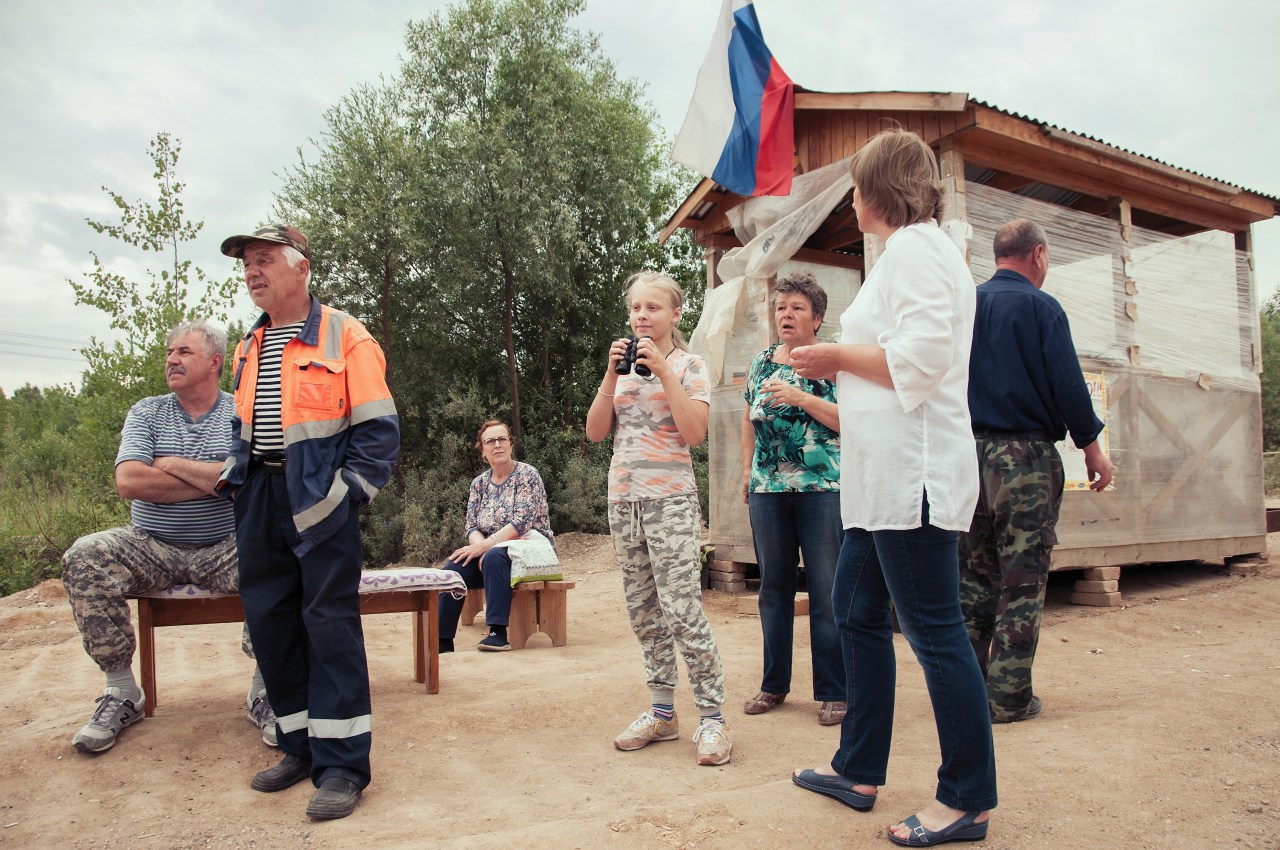
Thornburgh: You are fighting the local authorities over trash collection?
Artyukhov: We’re fighting for our right to clean air and water. I don’t live in Sychevo year-round, but I’ve owned a house here for the last 12 or 13 years, and I spend all the summer and holidays here, as well as weekends. A lot of people do live here year-round, and they’re fighting to stop authorities from starting a garbage dump here.
Thornburgh: When did you first hear about the garbage arriving?
Artyukhov: My neighbors told me on a VKontakte chat group in May that some companies were storing garbage here and that they were planning on building a garbage-sorting center.
Toward the end of April, local officials had actually organized a public hearing to discuss the project. In theory, it would only proceed if the majority agreed to it. But they didn’t seem entirely forthcoming in the process.
There was a woman at the event who was collecting people’s name and passport numbers. She said this was just a list to register who had attended the event, but we later found out that this list was used as a petition in support of the garbage dump. People became upset—they started shouting—and asked authorities to cancel the event and organize a new one.
This event had been organized during the workweek, when, of course, a lot of people were at work and couldn’t attend. We later learned that no one registered our complaints. Officials there reported that the event had been a success and proceeded with the dump. A few weeks later, on May 10, they started to transport the garbage.
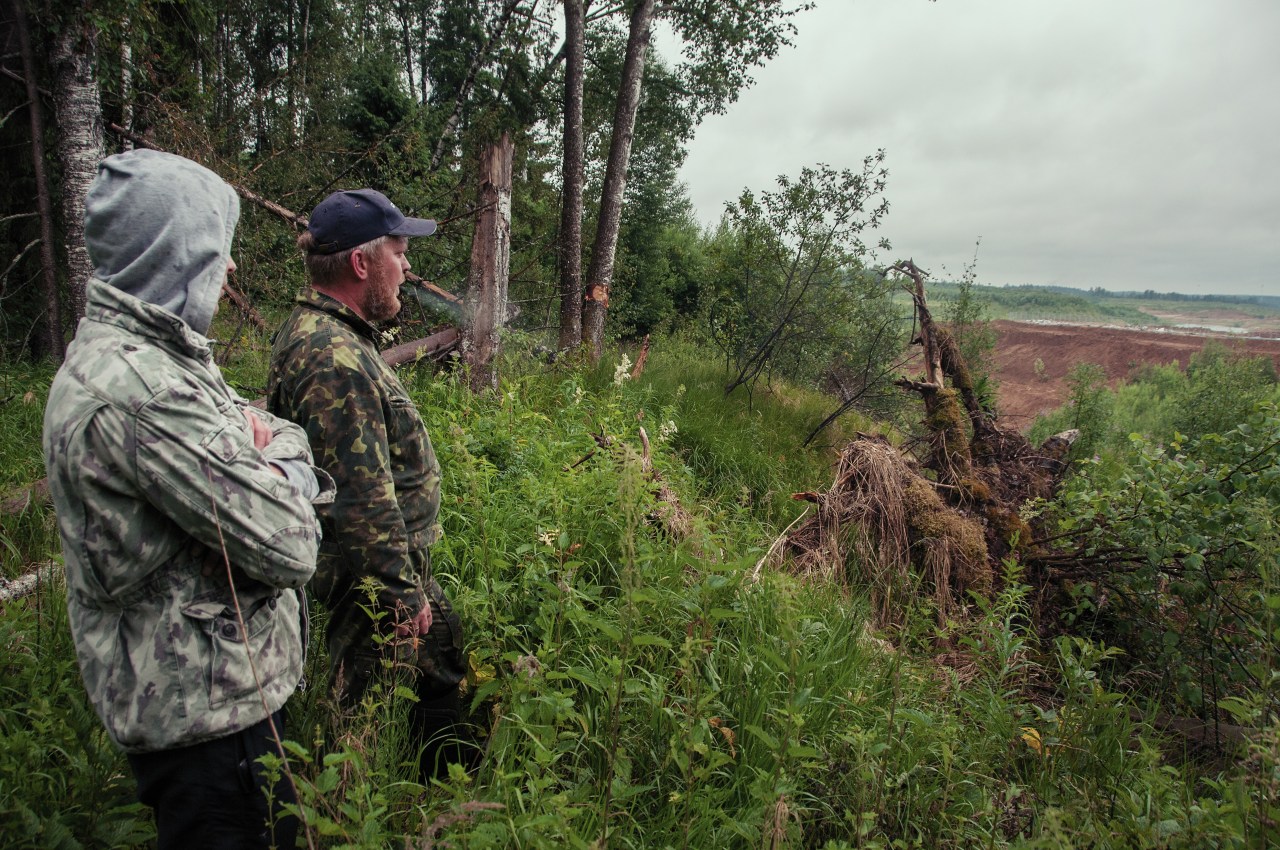
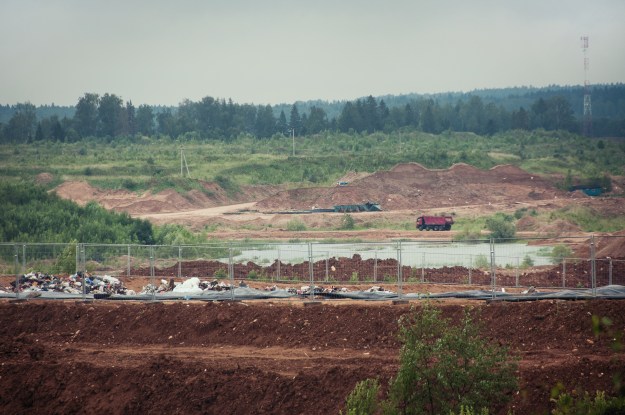
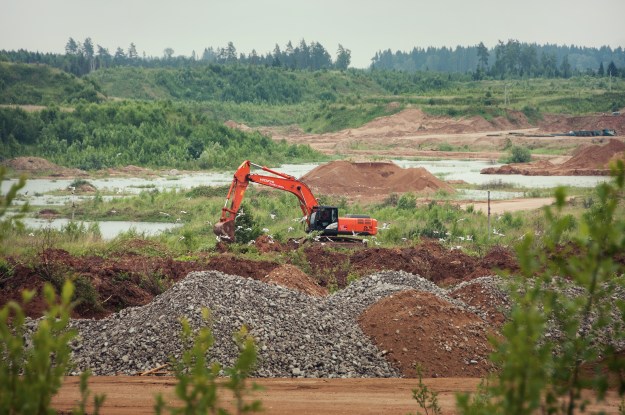
Thornburgh: So the officials at the event were creating a sort of fake petition?
Artyukhov: Yeah, I see it as actually fake. The people who organized the event manipulated it with the timing, the registration lists, and so on.
Thornburgh: What is Shchelkanovo like in its natural state, without the trash?
Artyukhov: The area around Shchelkanovo is a huge territory. Years ago, a mining company came in and dug a 6 ½ by 6 ½ mile pit. [Parts of it] were filled with water long ago, so you have these lakes … Some of them are big, some of them are small, but people use them for fishing and swimming. So we have nice sand beaches there.
According to the law, because it is a mine, you shouldn’t build anything above ground. You could plant trees but not build offices or buildings there. Plus the land is near an aquifer. So I don’t know exactly the year, but in the mid-1980s this plot was closed by Soviet authorities, who stopped the contract for the sand and stone because actually the mine somehow touched the aquifer.
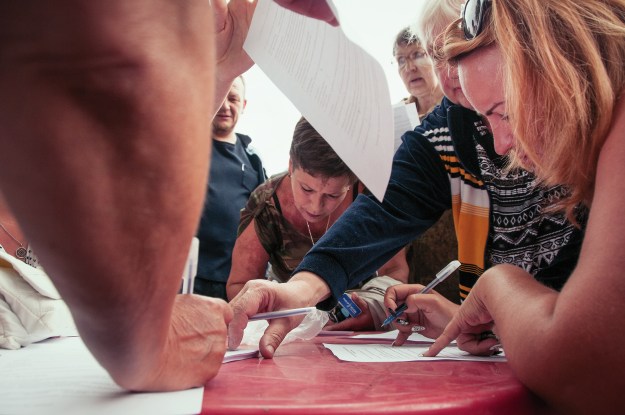

Thornburgh: How do you typically spend your time in Sychevo—before the trash fight, that is?
Artyukhov: I plant vegetables. I have tomatoes, cucumbers, potatoes. And I have a sauna. We’re surrounded by forests, so we go gathering mushrooms. Some years ago, I went fishing there as well. During the winter I like to snowmobile.
Thornburgh: You said that the director of the company that runs the dumpsite is Ildar Neverov, who describes himself as the “Presidential Commissioner for Entrepreneur’s Rights.” How do you protest something that well connected?
Artyukhov: A lot of us were sending letters to the federal authorities to protest the dumpsite, but they’re not answering. They’re sending the complaints down to local officials, who are just not answering or they are saying that everything is fine and so on.
There is a federal organization responsible for all the geological findings, and they released a paper. The sense we got from this letter was that [authorities] were not doing any research here. Our conclusion is that there is a threat that the garbage will contaminate our water.
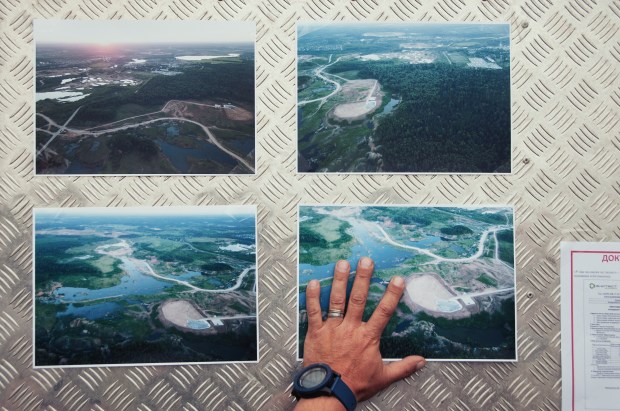
Thornburgh: How much trash is being dumped here?
Artyukhov: Between 25 to 30 truckloads, or about 110 to 130 tons, each day.
Thornburgh: What are you doing to stop it? Have you been standing in front of the trucks?
Artyukhov: People started gathering at the site from the very beginning, standing in front of trucks and not allowing to let them in. On May 10, when the first garbage truck came, the police started coming, and later armed officials with military clothing and helmets started coming in, ensuring the trucks were able to come in. They started pushing the [protesters] and arrested four. Afterwards, only women started to stand in front of the trucks. Because men were more likely to be arrested.
Thornburgh: So the police officers won’t touch the women?
Artyukhov: Well, they’ll push them, but they don’t seem to want to arrest them.
Thornburgh: Are there still police at the site?
Artyukhov: Yes. Each day a bus with around 20 or 25—let’s call them police fighters—comes in.

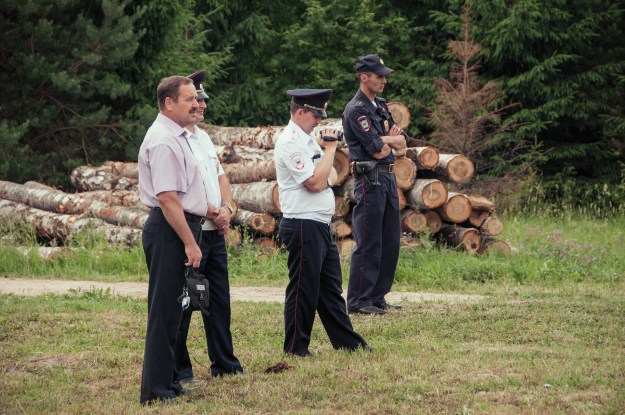
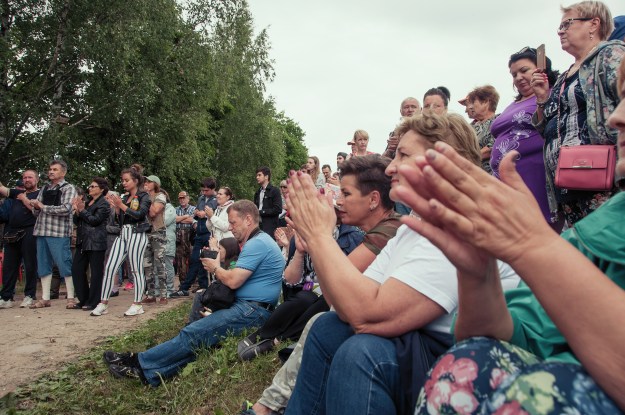
Thornburgh: Do you worry for your personal safety or about other repercussions amid this standoff with police?
Artyukhov: For the moment, we’re not standing in front of the trucks each day. We started to check documents for the garbage as much as possible, and if something is suspicious, we try not to let them in. Also, people are worried about property values—right now it is not even possible to sell property here because everyone knows about the plan.
Thornburgh: What do you think will happen now? You have tons of trash coming in on a daily basis. Is the fight over?
Artyukhov: We’re hoping something will happen in our favor in court. We are hoping to work with NGOs or environmental groups. For the moment, nothing is happening because we all are occupied with this football championship.
For those of us living in Sychevo, Shchelkanovo, and the surrounding area, the trash crisis is our daily reality. I’m sure for the people living right by the garbage, they don’t care about the World Cup. I’m not following the World Cup because I’m too occupied with this issue.
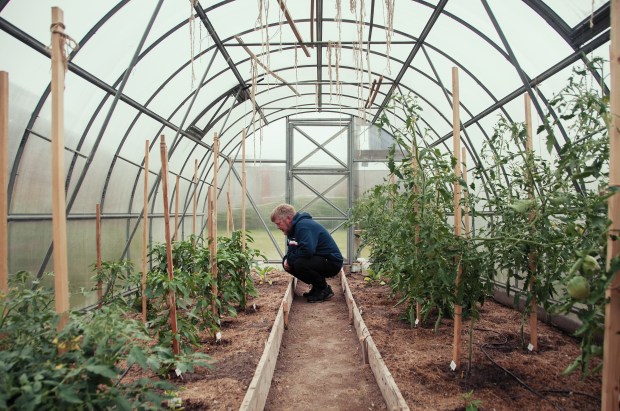
Thornburgh: Shchelkanovo is not the only town with a trash conflict. There’s also Yadrovo—
Artyukhov: Which is actually 12 or 13 miles from us. And the Kolomna dump, more than 124 miles away, which is going through something similar.
Thornburgh: In Kolomna, residents petitioned the Kremlin. Is that something Shchelkanovo residents have done?
Artyukhov: We had a call-in to President Putin in June, where people were sending text messages to the Kremlin. Some 700 people came to the site and read messages to the president, filming themselves. I wasn’t watching the broadcast of “Direct Line” with Putin, but I was told the focus wasn’t so much on the site but rather the issue of garbage not being collected. A lot of people are involved and writing letters to different organizations.
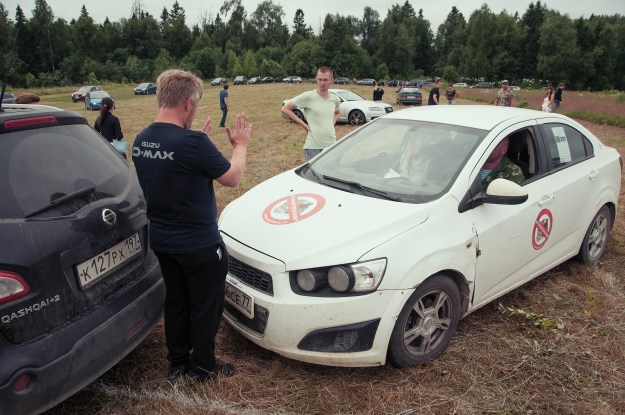

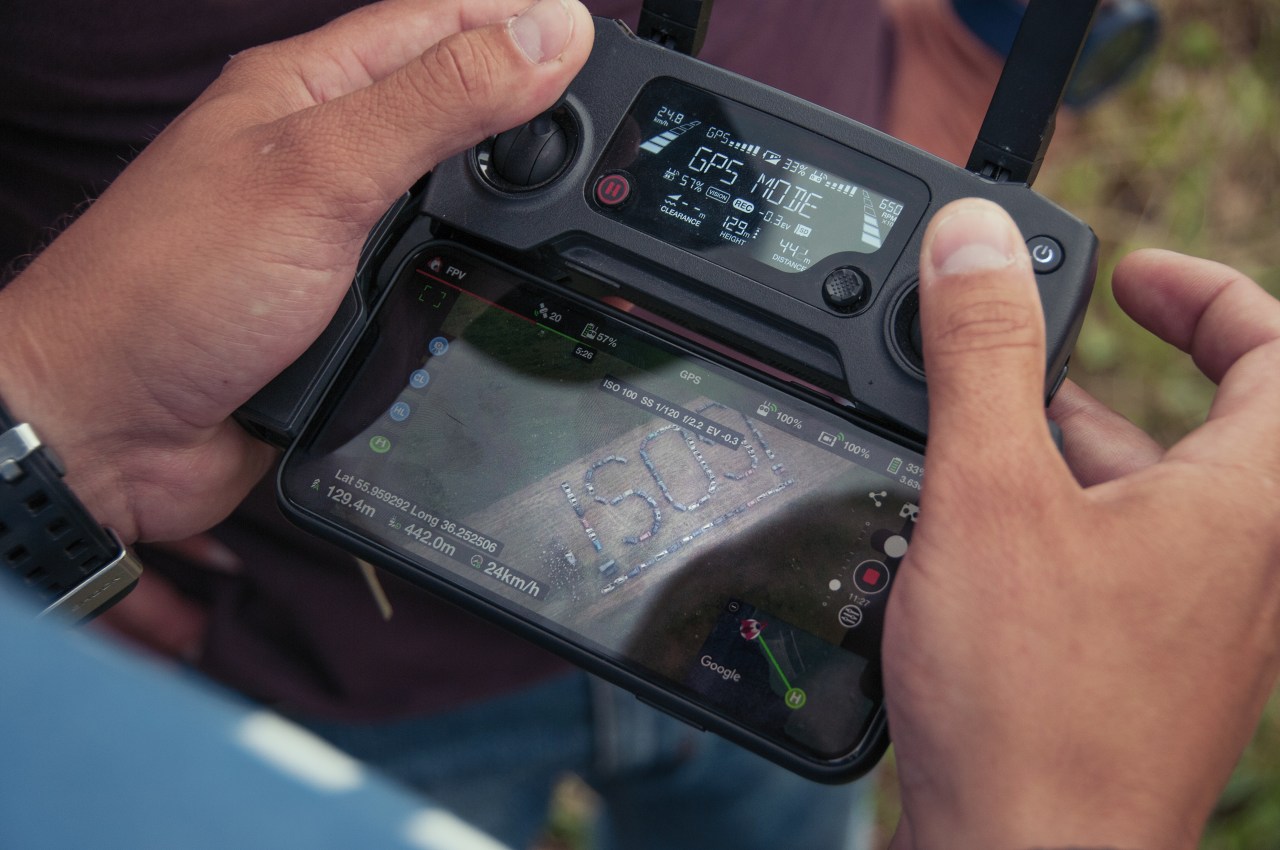
Thornburgh: We think of Russia as a pretty authoritarian place these days. Going up against the authorities in any way can be bad for your career, bad for your health. Do you worry about having this daily standoff with the police?
Artyukhov: Of course there is a threat. There is a risk even in doing this interview. Later on, let’s say, the security organs could say maybe you are a spy for America or whatever. Neverov has already said that everyone [protesting] there is paid by someone.
Thornburgh: They’re saying that you are paid protesters. So why take the risk?
Artyukhov: For me, the Muscovite, I mean, of course I could sell my summer house, and I will still have a place to live. But I don’t want to do that because I’ve had my house there for 12 years. And I can’t believe that it could be finished like that. They are thinking only about the money, even with the threat that they could poison the water. Because in two years, for example, they will take out all the money, and they just fly away. And we will be staying here.
This interview has been condensed and edited.